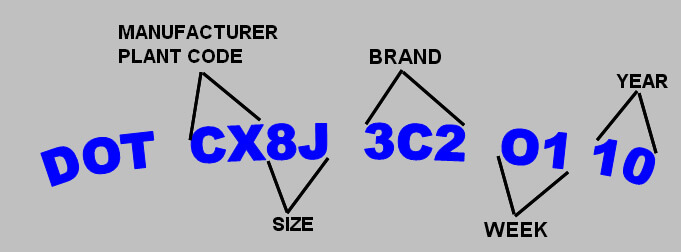Old Tires Sold as New
Just because a tire has never been driven on, that doesn’t always mean it’s safe. Retail outlets such as Wal-Mart, Pep Boys and more can legally label their tires “new,” even if they’ve sustained serious damage as a result of being stored in warehouses with poor climate control. Some tires shelved as “new” are actually five to six years old. They may look just fine, but they are just as dangerous as those damaged during the manufacturing process! Ford explicitly recommends changing your tires every six years to account for the frailties of aging rubber. Inadequate storage conditions, particularly involving freezes and overheating, can cause dry rotting and issues with the cohesion of the internal bonding. Consumers may not even be aware of the problems until the vibrations and heat from freeways worsen them. When treads fail to adhere, the following accidents that cause serious injuries, even death, may result:
- Rollovers
- Roof crushes
- Blowouts
- Tread separations
There are, fortunately, strategies for spotting aged tires sold as new. Catch them before they place you, your loved ones and others on the road at great risk.
Spotting an Aged Tire
First and foremost, you need to check the DOT number of your tire. This will include valuable information about when and where the tire was made, as the image below outlines.

Any make and model of vehicle is vulnerable, and old tires falsely sold as new have instigated wrecks in a wide range of cars and trucks, including:
- Volkswagon
- Porsche
- General Motors (GM)
- Chrysler
If you hear any unusual noises or feel any weird vibrations while driving, you may want to check the age of your tire, “new” or not. Change them out if their numbers indicate that they’re older than retailers led you to believe. Remember that spares are also susceptible to this issue! Those stored close to a heating source sustain damage much quicker, though any spare edging close to six years old without seeing any use needs to be thrown out and replaced just as much as your four on the road.
Who Is Liable?
There is no regulation for aging tires. As long as they’ve never been used, retailers can refer to them as “new,” giving consumers a false sense of security regarding their safety. However, the stores will be held accountable for negligence in the event they sell a tire damaged by aging under the auspice of newness. The law may not restrict their ability to deceive, but it does recognize and penalize them when they’re proven at fault.
CTA
The Steven J. Sharp Award-winning Willis Law Firm has Martindale-Hubble recognition and over three decades of experience representing individuals who have been seriously injured or families who have lost a loved one as a result of aged tires sold as new. From inspections to evidence gathering to filing the suit itself, we are here to help you at all stages of the litigation process. Contact us via email or a toll-free call to 1-800-883-9858 to schedule your consultation.
